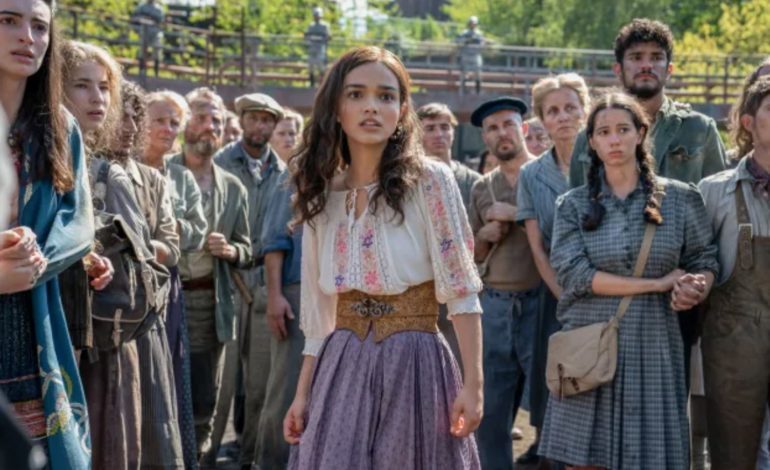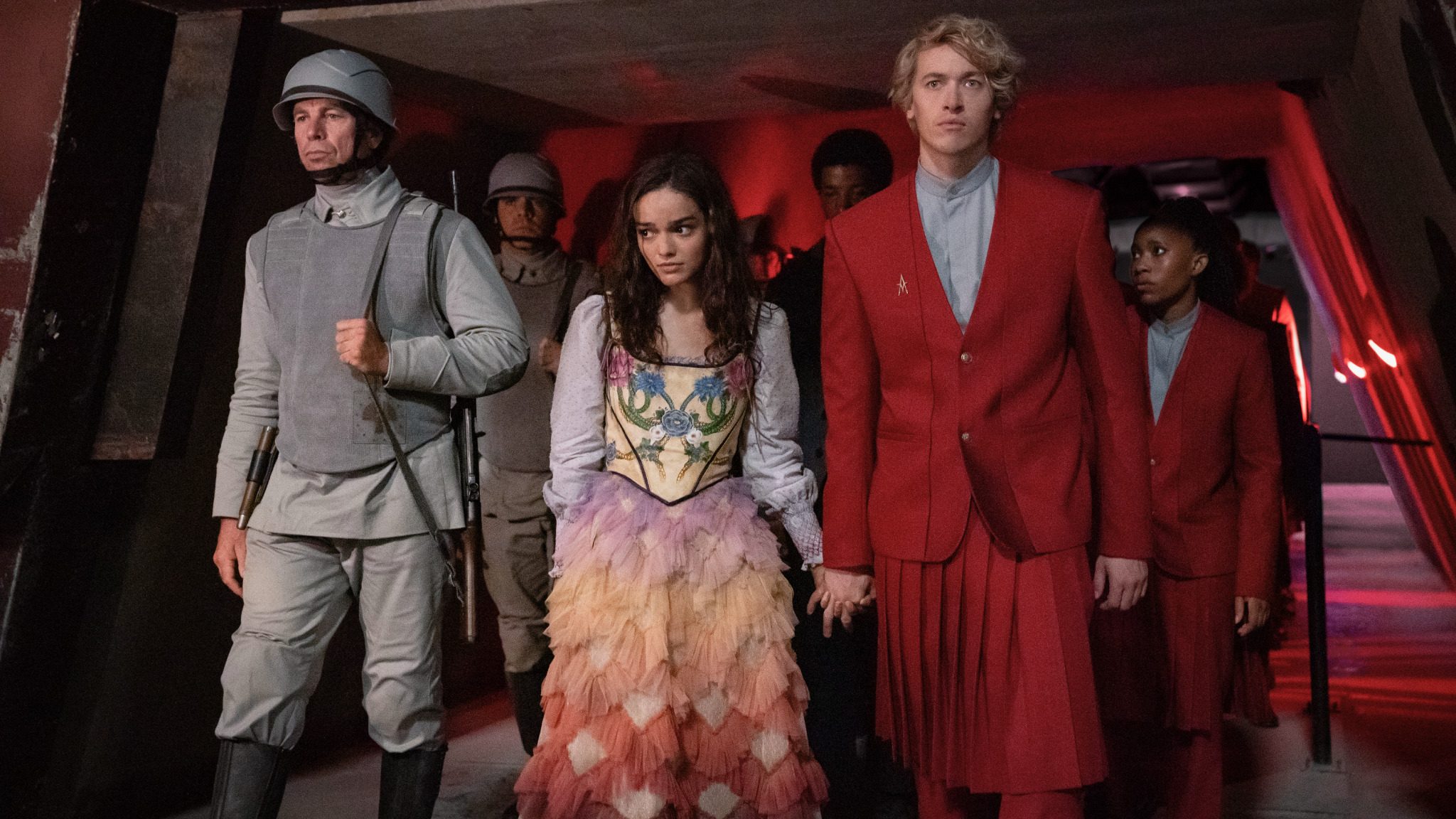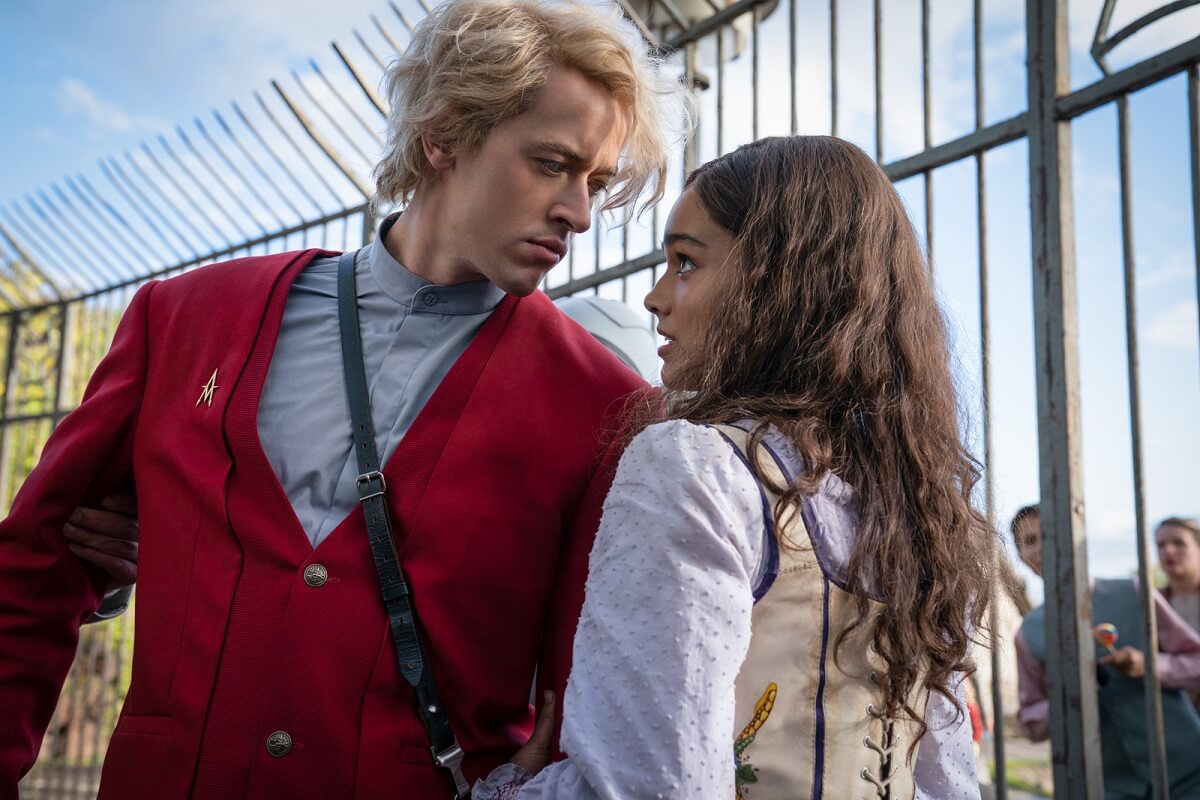

Do you remember the mid-2000s when it seemed as though every book in the young adult section featured a different world, a dystopia where our world as we know it is in ruin some time in the distant future? Divergent, The Maze Runner, The City of Ember, etc. the world was eating them up as quickly as authors could churn out new stories and movie production companies were working overtime to create adaptations. However, none were quite as infamous or successful as The Hunger Games. Kids were dressing up as Katniss and Peeta for Halloween, archery classes were seeing major increases in enrollment and when the movies began coming out, tourists flocked to the filming locations, thrilled to reenact their favorite scenes; exactly like what happened in the Capitol following Katniss and Peeta’s Games. With Suzanne Collins’ latest installment, The Hunger Games: The Ballad of Songbirds and Snakes, and director Francis Lawrence’s return, it seems The Hunger Games fever is returning in earnest. Serving as the prequel of the original trilogy following later president Coriolanus Snow’s youth and entrance to the Games, it seems the original fanbase is finally coming out of hibernation all these years later bringing with them the same raised eyebrows and considering looks claiming: maybe the themes in these fictional stories might be hitting just a little too close to home. With some of the Capitol’s themes for the Games coupled with means of resistance to injustice, it is frightening to see the parallels that exist in our society today.


Thinking about the premise of Suzanne Collins’ books—children getting reaped into an annual battle to the death, an unthinkable reality in today’s world, it’s easy to read these books as entertaining fiction. However, one of the major themes that rings true about the whole concept of the Games is that we as a society hold entertainment and pleasure higher than almost anything else. One of the first conflicts faced in Songbirds and Snakes is how to make the Games enjoyable. As is so rightly stated, if a production is not entertaining, there is no way it will be renewed and continued. From the ripples that Lucy Gray was able to make following her reaping performance, the young Snow recognized that people, in general, want to have some kind of emotional investment and a reason for participating in anything. By getting the target audience for the Games invested and betting on a tribute, the District children were turned into objects of admiration, sensationalizing the violence and turning the Games into, well, a game for the Capitol citizens to bet on.
Coriolanus’s goal in proposing an increased personal interest in the games was not to have the people of the Capitol sympathize with the tributes, rather by giving people someone to root for and bet on, it simultaneously humanized and dehumanized the Districts. In Songbirds and Snakes, Snow is asked twice why the Games are held, once at the beginning, and once at the end. Initially, he answers that they are a means to remind the Districts of the uprising and punish them. However, after going through the entire Games as a mentor and recognizing the separation that is placed between District and Capitol, he answers that they are a means to remind everyone who they are. Snow’s version of the Games that continued to Katniss and Peeta’s generation fully turned the tributes into playthings and ‘pieces of their games’ as Peeta pointed out in the original series. Stripping away a tribute’s humanity allows the Capitol to happily continue to disconnect themselves from ‘that group’ and see themselves as superior beings rather than even being the same species. The only reason the people of the Capitol would pay a tribute any mind is if they showed themself to be exemplary, charming, and talented, allowed to live only through selling themselves to the crowd rather than just for the sake of their humanity.
Feeding into the illusion of an entertaining game, in the first Hunger Games, without Katniss’s consent, she and Peeta are pitched as star-crossed lovers from District 12. When they are in the arena, Haymitch would only send them any supplies if this role was fulfilled for the audience. A kiss on the cheek, a heartwarming anecdote, anything that made the viewers at home sigh earned the pair a lifesaving substance of some kind. Fitting into the mold that had already been in people’s minds was the only thing that justified Katniss and Peeta’s continued survival. On a more personal level, this is the same Capitol mindset that Coriolanus kept while working with Lucy Gray in the 10th Games. When he was considering sacrificing his future to help her, the only question he asked was if this was real, meaning he was only willing to help Lucy Gray if she continued to occupy the space he had made for her in his mind rather than hoping for her survival as a fellow human being. While this could be a general critique of Corio’s character, the reflection of this culture later on seems to cement it as a piece of the Capitol’s mentality.


The ability to see this manifest in major ways throughout the series also highlights that the entirety of The Hunger Games series serves as a major critique of our modern culture. This selective support and recognition of an entity in how it fits into a preconceived agenda can be taken back to how many conflicts are presented to the public through the media in the US both domestically and internationally. If there is no financial interest for the government, be it in strategic positioning, oil, resources, etc., oftentimes the American public never hears about it. It is only when there is a direct payoff that any interest, often disguised as humanitarian assistance, is paid, positioning the US as a hero to any so-called less fortunate community or entity.
Another layer of this selective apathy can be seen in the second movie of the original franchise, Catching Fire. In his interview with Caesar Flickerman, Peeta expresses his regret that he and Katniss must go back to the Games “because of the baby”. This is the last straw for the crowd that is already riled up by many of their favorite celebrities being shipped off to the Games. Because of Peeta’s words, which happen to be a lie, the public calls for the Games to be canceled. The irony of this scene has been rehashed many times in the years since the movie debuted, but as a reflection of our society, caring about the life of an unborn child more than the kids that are shipped off every year to fight to the death can be placed in conversation with anti-abortion sentiments and even gun control laws.
However, in a series that revolves around placing young children in mortal combat, unborn children aren’t the only ones the Capitol chooses to invest sympathy in. In Songbirds and Snakes, one of the most powerful scenes is when District 11 tribute, Reaper places the deceased bodies of the tributes in the middle of the arena for all to see and then rips down the flag of Panem laying it over the dead, instigating outcry from the watching members of the Capitol. The message of this scene is clear as day, you killed them, they are part of the country that brought about their demise. Rather than being outraged by the deaths of these young people, the audience is furious that Reaper ripped down and disrespected the flag, the symbol of the country, showing more emotion towards a symbol and a government than to its citizens. Not to mention the scene directly following Reaper’s challenge: the television cuts to Dr. Gaul announcing the death of the president’s son, Felix, after the rebel attack on the arena before the beginning of the Games. Gaul then announces a severe punishment in retaliation for Felix’s death to be unleashed upon the tributes. The irony of this scene change is hardly subtle, particularly showing the Capitol citizens mourning Felix who, besides association with the Capitol and its government, is an innocent kid just like the tributes. This just serves as another example of selective apathy along class lines and separation between the civilized Capitol and the savage people of the Districts. Even outside of outright death, the joke that Lucky Flickerman makes asking the mentors to please throw up off camera because it’s too disgusting shows the separation of priorities between watching forced murder for entertainment versus something disgusting like vomit.


With the success of the Hunger Games series launching a fanbase in the mid-2000s into a frenzy, drawing up maps to see what district they would be in, and learning to shoot a bow and braid hair, Suzanne Collins has opened the door to conversation about the formation of our society. In a story that revolves around something as unbelievable as sending off children for slaughter as a means to maintain their inferiority, the real-world critiques are still seemingly endless. The background of the Games in the most recent installment, Ballad of Songbirds and Snakes, gives even more screentime to the selective apathy and disparity that is present in the original series. Particularly the culture of the Capitol focusing only on personal gain and entertainment, such as Peeta and Katniss’s romance and Coriolanus’s view of Lucy Gray showed how we tend to define someone’s worth by outside factors rather than their humanity. Furthermore, placing importance on only particular lives while disregarding others based on nothing more than the luck of geography or familial origin are all themes that this series has forced a generation to confront. Just as she did ten years ago, it seems that Collins has once again managed to hold a cleverly disguised mirror up to society and tricked us into staring straight into the face of our reality.
